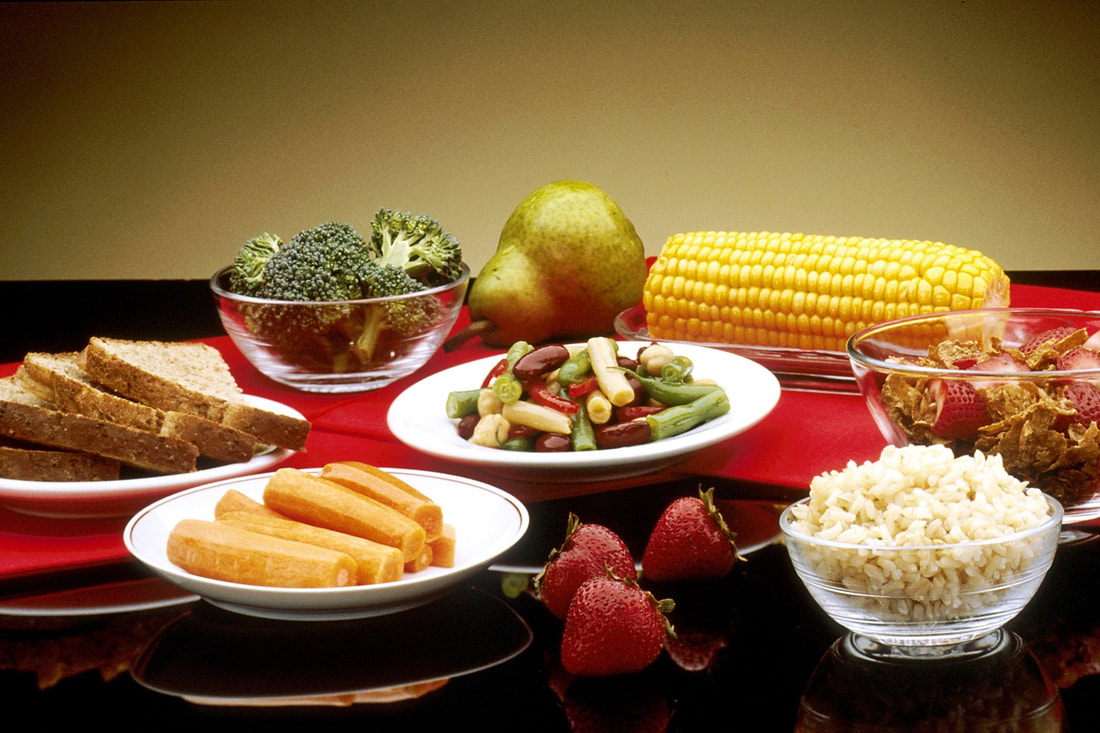|
Are you in the habit of eating late at night and going to bed less than two or three hours after eating?
Do you toss and turn throughout the night and feel tired in the morning? When its breakfast time, do you find yourself without an appetite? If you've answered yes to any of these questions you may want to consider the counsel in Proverbs 23:2, "And put a knife to thy throat, if thou be a man given to appetite." Now its not saying that you literally put a knife to your throat, but it is saying that you need to get control over your appetite. If you are over-eating, eating between meals and late at night your health may be in serious trouble. Late night eating has been associated with depression, low self-esteem, reduced daytime hunger, and less weight loss in obese people or those trying to lose weight. It has also been found to cause many health problems that lead to an early death. "For persons of sedentary habits, late suppers are particularly harmful. With them the disturbance created is often the beginning of disease that ends in death." CD 173 "Many indulge in the pernicious habit of eating just before sleeping hours. They may have taken three regular meals; yet because they feel a sense of faintness, as though hungry, will eat a lunch or fourth meal. By indulging this wrong practice, it has become a habit, and they feel as though they could not sleep without taking a lunch before retiring. In many cases, the cause of this faintness is because the digestive organs have been already too severely taxed through the day in disposing of unwholesome food forced upon the stomach too frequently, and in too great quantities. The digestive organs thus taxed become weary, and need a period of entire rest from labor to recover their exhausted energies. A second meal should never be eaten until the stomach has had time to rest from the labor of digesting the preceding meal. If a third meal be eaten at all, it should be light, and several hours before going to bed. But with many, the poor, tired stomach may complain of weariness in vain. More food is forced upon it, which sets the digestive organs in motion, again to perform the same round of labor through the sleeping hours. The sleep of such is generally disturbed with unpleasant dreams, and in the morning they awake un-refreshed. There is a sense of languor and loss of appetite. A lack of energy is felt through the entire system. In a short time the digestive organs are worn out, for they have had no time to rest. These become miserable dyspeptics (irritable from indigestion), and wonder what has made them so. The cause has brought the sure result. If this practice be indulged in a great length of time, the health will become seriously impaired. The blood becomes impure, the complexion sallow, and eruptions will frequently appear. You will often hear complaints from such, of frequent pains and soreness in the region of the stomach, and while performing labor, the stomach becomes so tired that they are obliged to desist from work, and rest. They seem to be at a loss to account for this state of things; for, setting this aside, they are apparently healthy." CD 174-175
0 Comments
The Israelite's were a strong people and the reason is because they were governed by strict laws regarding food and their lifestyle. During the time that Moses received the law of God at Mount Sinai and the erecting of the Tabernacle, he received instructions pertaining to living a clean and holy lifestyle.
In order for God to dwell among them, it was imperative that the people maintained a holy character, ethical behavior, cleanliness of person, cleanliness of surroundings and ate clean foods. Therefore the Priest were instructed, "Do not drink wine nor strong drink, thou, nor thy sons with thee...that ye may put difference between holy and unholy, and between unclean and clean." Lev. 10:9-10. In order to have strength of mind and spiritual discernment, there can be no consumption of wine, strong drink, or anything that would impair the judgment. This is why it is said that Christ while upon the cross refused to drink vinegar mingled with gall (Matt. 27:34) He did not want His judgment to be impaired.
The services of the Sanctuary teaches us how we are to live, and what we are to eat as we move closer to God. At the beginning of the Christian's journey which begins in his tent and leads to the Courtyard we find flesh that was sacrificed and on occasion eaten by the Priest. As you move into the Holy Place, a little closer into God's presence we find no meat, but bread and oil. Upon entrance into the Most Holy Place, entering into the presence of God, we find in the Ark a pot of manna and almonds (an even more natural diet) along with the law of God as its centerpiece. As the children of Israel were on a journey to the promise land, so are we, and the Bible teaches that God prepared them for this transition. In Exodus 16, as God had moved the children of Israel closer to their destination (Canaan), He changed their diet to prepare their bodies for battle against their enemies, and their minds to be clear to serve Him and discern His leading. They went from meat to manna. Today we are on the brink of the heavenly Canaan and God is appealing to us to change our diet and lifestyle. He wants us to be a clean and holy people before Him. He is trying to prepare us for this great battle that we are about to engage in, and in order to survive it we must have clean, strong bodies, clear minds, keen intellect, and spiritual discernment and abilities. Now is the time for us to have the most simple but nourishing diet, free from fat, cholesterol, excessive sugar, preservatives, pesticides and contaminants. We have been counseled that "Grains and fruits prepared free from grease, and in as natural a condition as possible, should be the food for the tables of all who claim to be preparing for translation to heaven." CD 63 Bless the LORD, O my soul: and all that is within me, bless his holy name. Bless the LORD, O my soul, and forget not all his benefits: Who forgiveth all thine iniquities; who healeth all thy diseases; Who redeemeth thy life from destruction; who crowneth thee with lovingkindness and tender mercies; Who satisfieth thy mouth with good things; so that thy youth is renewed like the eagle's. Psalm 103:1-5 |
AuthorWrite something about yourself. No need to be fancy, just an overview. Categories
All
|



 RSS Feed
RSS Feed